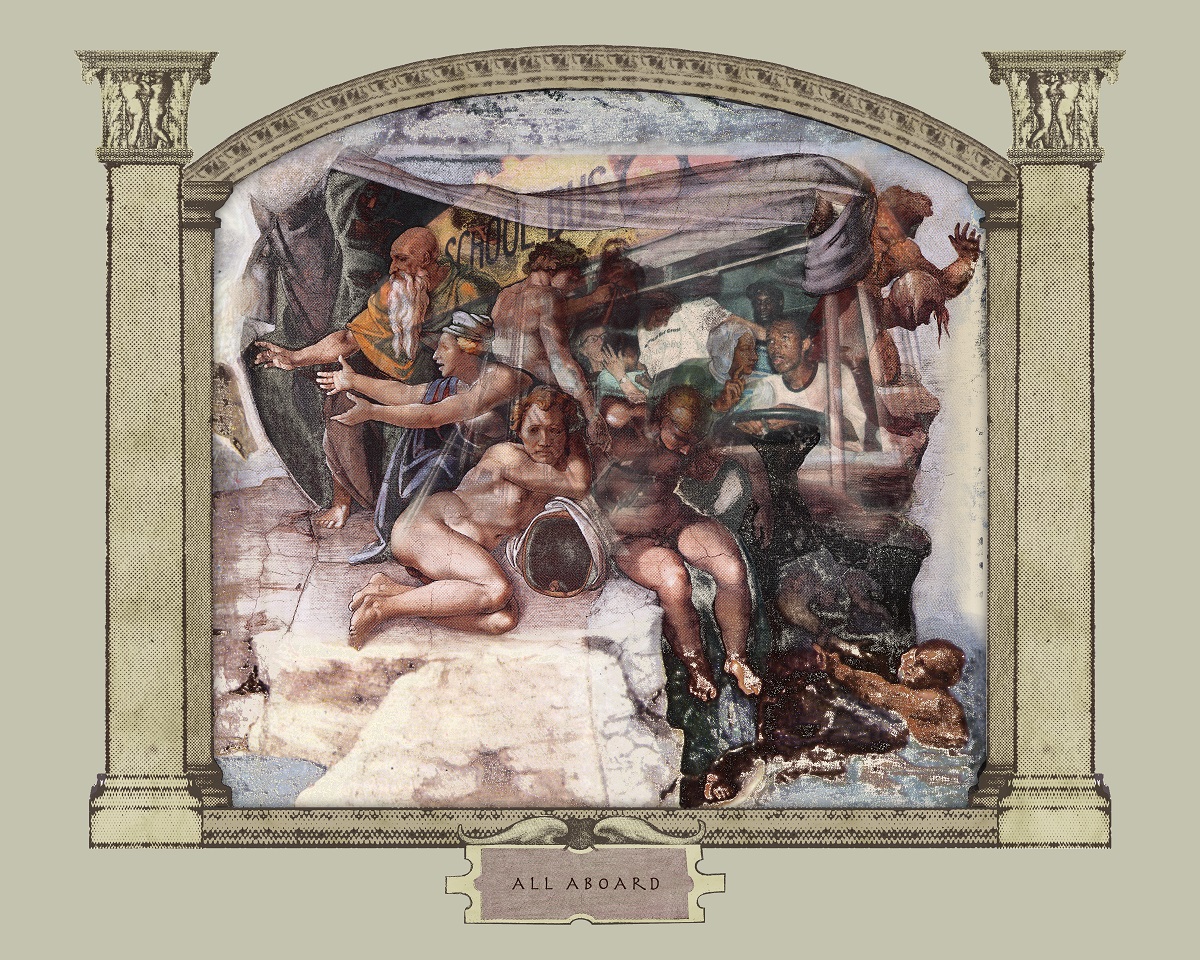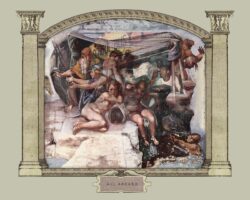Poetry by Brad Richard
Racial violence in New Orleans in 1900 and 2005
Published: September 1, 2020
Last Updated: November 30, 2020

Lou Blackwell
All Aboard, digital collage, 2016.
In the spirit of Jake Adam York, Brad Richard’s poems uncover and bear witness to horrific racial injustices that have been long forgotten. Richard’s voice is a camera, providing gut-stirring details of incidents of racial brutality. His finely crafted poems speak truth that is relevant and truly necessary for contemporary discourse.
—John Warner Smith
The Missing Skull
Where is his skull? a man’s mother asked.
The man was burned in a car. Two men found it
by the river, the corpse shot in the head.
The police did this. After the autopsy, what remained
fit in two vinyl bags.
But how could you lose his skull?
How can I bury my son? She had to bury her son
without his head.
Henry Glover. His skull, wrapped
in newspaper, in a box, in an attic winter and summer
I can’t stop imagining, now
ten winters and summers
among holiday ornaments, old uniforms, trophies.
The plates, the jaw, the teeth, the bullet hole.
Roaches and silverfish have eaten the box.
Wasps have chewed the newspaper
for nests built elsewhere.
And this is as far
as I can go, ant haunting this broken dome.
Landscape with Burning Car
New Orleans, five days after Hurricane Katrina
From the Patterson Drive levee,
all we could have witnessed:
sunset, the sky wrung-out hues.
No seagull’s cry, ferry’s horn, siren.
A calm river. Nothing
in the willows at the water’s edge,
one charred place
where smoke and gasoline
and blistered metal and charred
body and vapored flesh
and a policeman’s spent flare
and his shirt bloody
and a hole in his head
in a white Chevy Malibu
Henry Glover
Night already come down
in the willows at our water’s edge.
For Robert Charles
New Orleans Race Riot, 1900
After you killed the two cops who came for you
and the white mob didn’t know where you’d run,
they got drunk and started hunting down blacks
in gaslit streets, even tried to snatch an old man
from under a white woman’s skirts on the streetcar,
even shot an old fruit seller dead. “Oh,” said the killer,
“he’s an old negro. I’m sorry that I shot him.”
Meantime, in the room you’d fled, while the mayor
passed his evening at the Turkish baths, nosy white folks
poked around for clues. Found the Voice of Missions
bundled near pamphlets preaching “Back to Africa.”
Found pencil-marked textbooks, your name inside.
Found a box of morphine (they said) or cocaine.
Soap scraps, a bullet mold on your mantel—
a thief, a killer. Found, too, in your trunk,
composition books you’d filled, your mind bent—
so claimed a reporter—on learning only
to conquer the white race. Long gone, those notebooks,
with your tailored suits, your Winchester.
The ladies next door thought you a scholar.
“There was an air of elegance about Mr. Charles.”
Ten thousand white men swarmed the boarding house
you’d holed up in, finally smoked you out
when they tired of you picking them off.
Tossed your riddled corpse in a wagon. Your head,
dangling off the edge, bounced hard on the ride
across town to the deadhouse. Jelly Roll
said Storyville had a sorrow song for you,
but “that song never did get very far.”
Brad Richard is the author of four collections of poetry: Habitations, Motion Studies, Butcher’s Sugar, and Parasite Kingdom, winner of the 2018 Tenth Gate Prize from The Word Works. He lives and writes in New Orleans, where he taught talented high school students for twenty-eight years. More at bradrichard.org.
